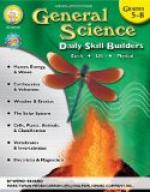The other important ingredient of most fertilizers is potash. Wood ashes are rich in potash and are a valuable addition to the soil. But the amount of potash thus obtained is far too limited to supply the needs of agriculture; and to-day the main sources of potash are the vast deposits of potassium salts found in Prussia.
Although Germany now furnishes the American farmer with the bulk of his potash, she may not do so much longer. In 1911 an indirect potash tax was levied by Germany on her best customer, the United States, to whom 15 million dollars’ worth of potash had been sold the preceding year. This led Americans to inquire whether potash could not be obtained at home.
Geologists say that long ages ago Germany was submerged, that the waters slowly evaporated and that the various substances in the sea water were deposited in thick layers. The deposits thus left by the evaporation of the sea water gradually became hidden by sediment and soil, and lost to sight. From such deposits, potash is obtained. Geologists tell us that our own Western States were once submerged, and that the waters evaporated and disappeared from our land very much as they did from Germany. The Great Salt Lake of Utah is a relic of a great body of water. If it be true that waters once covered our Western States, there may be buried deposits of potash there, and to-day the search for the hidden treasure is going on with the energy and enthusiasm characteristic of America.
Another probable source of potash is seaweed. The sea is a vast reservoir of potash, and seaweed, especially the giant kelp, absorbs large quantities of this potash. A ton of dried kelp (dried by sun and wind) contains about 500 pounds of pure potash. The kelps are abundant, covering thousands of square miles in the Pacific Ocean, from Mexico to the Arctic Ocean.
CHAPTER XXVII
SOUND
249. The Senses. All the information which we possess of the world around us comes to us through the use of the senses of sight, hearing, taste, touch, and smell. Of the five senses, sight and hearing are generally considered the most valuable. In preceding Chapters we studied the important facts relative to light and the power of vision; it remains for us to study Sound as we studied Light, and to learn what we can of sound and the power to hear.
250. How Sound is Produced. If one investigates the source of any sound, he will always find that it is due to motion of some kind. A sudden noise is traced to the fall of an object, or to an explosion, or to a collision; in fact, is due to the motion of matter. A piano gives out sound whenever a player strikes the keys and sets in motion the various wires within the piano; speech and song are caused by the motion of chest, vocal cords, and lips.
[Illustration: FIG. 164.—Sprays of water show that the fork is in motion.]




